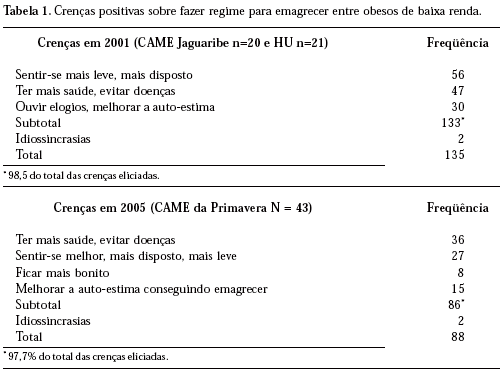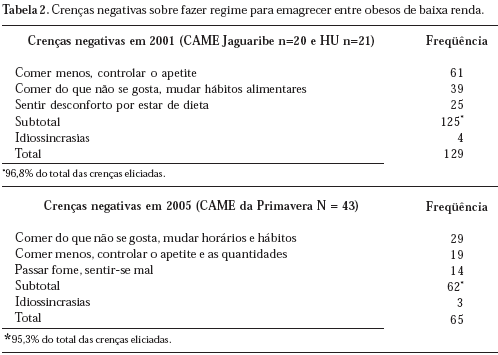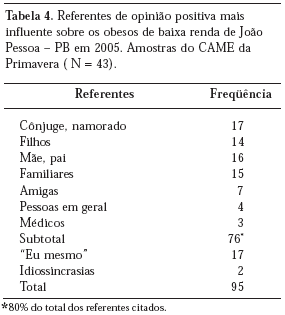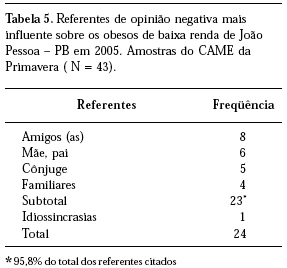Obesity has become an epidemic that requires immediate control, mainly among the poor, particularly women and the less educated. The WHO requests and several studies confirm that support is needed for research projects examining psychological and social behavior that hampers compliance with weight loss diets. This paper uses the Theory of Reasoned Action (TRA) of M. Fishbein (1975) in social psychology, comparing two series of open interviews (conducted in 2001 and 2005) that disclosed positive (advantageous) and negative (harmful) beliefs about weight loss diets among low-income obese patients in João Pessoa, Paraíba State, as well as their guides (people of influential opinion) on following their diets. The 2001 findings were corroborated in 2005, revealing fears of diseases related to obesity and the wish to feel healthier and lighter. Mothers, children and above all spouses were mentioned as diet supporters. It was stressed that will-power is not be enough, but also reflection and building up control skills, in addition to allocating and altering life styles. Concerns related to appearance were not high priority. This information may lead to better diet compliance.
Obesity; Diet; Poverty; Nutrition; Social psychology





